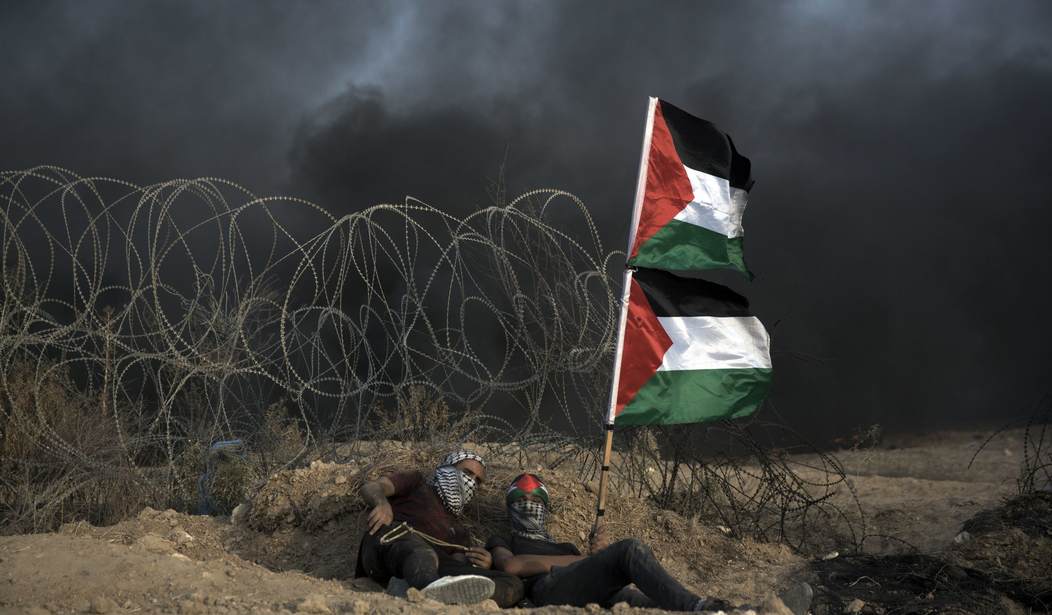Last week the United Nations Human Rights Council (HRC) published a list of 112 companies that do business with Israeli settlements to embolden those who support the Boycott, Divestment and Sanctions (also known as BDS) movement. Ironically, this movement hurts the people it seeks to support. Boycotting companies which operate or do business in the areas of Judea and Samaria harm Arab families as much if not more than Jewish families. There are currently thousands of Arabs employed by Israeli companies throughout the industrial zones of Judea and Samaria. If groups like the UN truly wish to help the Palestinian people, they would focus on ways to expand rather than shrink economic growth in the region. For instance, the White House’s peace plan outlines billions of dollars in potential investments and economic initiatives that could create over 1 million new jobs, reduce the unemployment rate below 10 percent, and reduce the poverty rate by 50 percent.
Those who support the BDS movement might not realize that - for the most part - Jews and Palestinians living in the settlements live peacefully with each other. Not only do they work together in businesses, but they also shop at the same markets. That is not to say that Jews do not fear terrorist attacks, which do happen and are actually thwarted much more often than most would realize, but in daily life they do, for the most part, co-exist and focus on their work and their families.
Another irony concerning this list of companies to boycott by the UN, is that countries such as Somalia, Venezuela and the Philippines sit on the Human Rights Council. Each of these nations have a long history of human rights abuses which should make them unfit to serve in such capacity. For example, in the Philippines, human rights defenders and journalists critical of the government are increasingly harassed, vilified, and killed. Six thousand and five hundred people have been killed in their anti-drug campaign alone.
In a speech in 2018, Nikki R. Haley, then the United States ambassador to the United Nations noted that the Human Rights Council passed five resolutions against Israel that year alone - more than the number passed against North Korea, Iran and Syria combined. She went on the say, “This disproportionate focus and unending hostility toward Israel is clear proof that the council is motivated by political bias, not by human rights.”
Recommended
In addition, to boycotting Israeli companies, there are many international companies on the list including Motorola, General Mills, Booking.com and Expedia.com. As for the Israeli based companies, nearly every bank and gas company in Israel is on the list and each of them provide vital services for Arabs and Jews alike.
Meanwhile, the world and the UN remain largely silent about illegal occupations in Kurdistan (by Turkey/Iraq and Syria), Crimea (by Russia), Kabylia (by Northern Algeria), Tibet (by China), Western Sahara (by Morocco) and Northern Cyprus (also by Turkey). Unlike the settlements in Israel, which are on historically Jewish land and were given over to a future Jewish State at the San Remo Conference of 1920 in a legally-binding foundational document under international law, the same international law is quite clear on the illegality in these other conflicts. According to international law, despite the rhetoric to the contrary, many legal experts uphold Israel's legal right to build and develop the areas of Judea and Samaria - the settlements.
So why is there such outsized criticism of Israel? While I don’t like throwing the term around haphazardly, in this case, the answer is obviously anti-Semitism. If Jews were treated better by the countries that many lived in over the past two thousand years, maybe they would not have yearned to return home to Israel. Although there has always been a Jewish presence in Israel, if it were not for anti-Semitism, Theodore Herzl might never have dreamed of Jewish statehood in our ancestral homeland in the first place. The Jews have been treated like pariahs and persecuted across the world throughout history, and since returning to their original homeland they have not, for a single day, been allowed to live in peace. Despite facing so many imminent and existential threats requiring major investments in military defense, Israel has prospered and excelled in medicine, technology and the arts. Israeli inventions have benefited the entire world.
So many demonize Israel while they continue to remain the only democracy in the Middle East, and a vibrant one as well. More than 800,000 Jews were expelled from their surrounding Arab countries after the establishment of the State of Israel. Meanwhile in Israel, Israeli Arabs have their own political parties, serve in the Knesset, on their Supreme Court, partake of all educational and occupational opportunities and live in peace alongside their Israeli neighbors.
Israeli law prohibits discrimination based on gender in employment and wages. How many Arab countries can boast that? In 2017 Israel was ranked the world’s 8th safest country for women by the New World Wealth research group. Many Jewish and Arab women are college educated and work in professions such as medicine, the various sciences, law, and the arts. Women are treated as second class citizens in Arab countries yet many bodies such as the UN continue to overlook these issues and choose to come back to singling out Jews and the Jewish State as the most critical issue deserving international condemnation. This preoccupation seems to be based less on the issue itself and more on inflaming the world’s oldest and most persistent prejudice.
Many in Israel would be happy to invest in Palestinian businesses and build up their communities and to help Palestinians prosper. Unfortunately, the hundreds of billions of dollars which have already been invested into these areas have been confiscated by its leaders for their own personal gain as well as to continue their self-imposed war against the entirety of Israel. Just looking at Gaza alone, billions of dollars have been sent by the international community in order to build institutions of education, medicine and other areas to improve the lives of those living here. Sadly, nearly every dollar donated has been “stolen” by their leadership to build terror tunnels, produce weaponry and inculcate hatred for the Jewish People in their schools, most of which are run and operated by the UN’s UNWRA program.
Instead of focusing their time on hurting Israeli and international businesses, maybe the UN and the BDS movement should focus on how to help Palestinian communities thrive and redirect their ire on true human rights crises.
Scott Feltman is the executive vice president of One Israel Fund.

























Join the conversation as a VIP Member